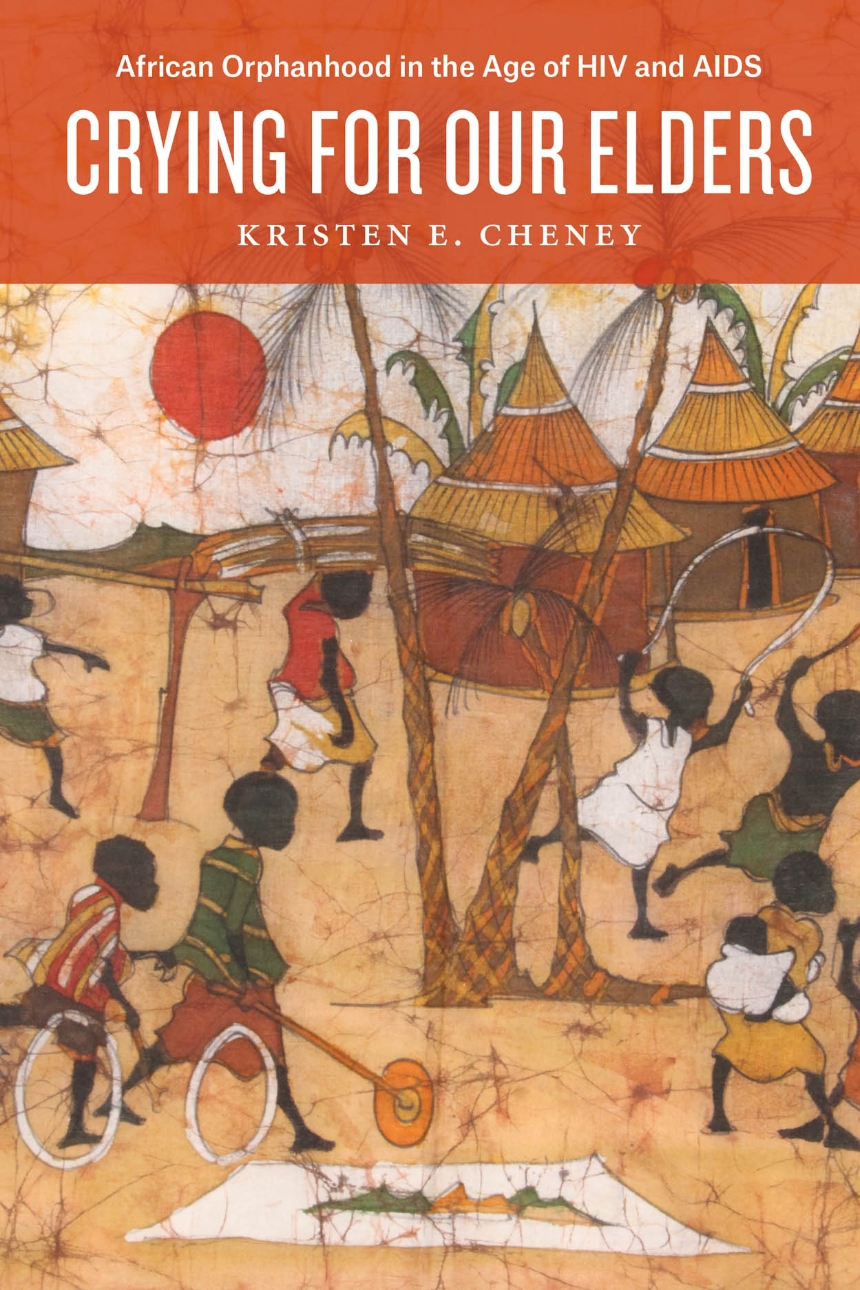Crying for Our Elders
African Orphanhood in the Age of HIV and AIDS
9780226437545
9780226437408
9780226437682
Crying for Our Elders
African Orphanhood in the Age of HIV and AIDS
The HIV/AIDS epidemic in Africa has defined the childhoods of an entire generation. Over the past twenty years, international NGOs and charities have devoted immense attention to the millions of African children orphaned by the disease. But in Crying for Our Elders, anthropologist Kristen E. Cheney argues that these humanitarian groups have misread the ‘orphan crisis’. She explains how the global humanitarian focus on orphanhood often elides the social and political circumstances that actually present the greatest adversity to vulnerable children—in effect deepening the crisis and thereby affecting children’s lives as irrevocably as HIV/AIDS itself.
Through ethnographic fieldwork and collaborative research with children in Uganda, Cheney traces how the “best interest” principle that governs children’s’ rights can stigmatize orphans and leave children in the post-antiretroviral era even more vulnerable to exploitation. She details the dramatic effects this has on traditional family support and child protection and stresses child empowerment over pity. Crying for Our Elders advances current discussions on humanitarianism, children’s studies, orphanhood, and kinship. By exploring the unique experience of AIDS orphanhood through the eyes of children, caregivers, and policymakers, Cheney shows that despite the extreme challenges of growing up in the era of HIV/AIDS, the post-ARV generation still holds out hope for the future.
Through ethnographic fieldwork and collaborative research with children in Uganda, Cheney traces how the “best interest” principle that governs children’s’ rights can stigmatize orphans and leave children in the post-antiretroviral era even more vulnerable to exploitation. She details the dramatic effects this has on traditional family support and child protection and stresses child empowerment over pity. Crying for Our Elders advances current discussions on humanitarianism, children’s studies, orphanhood, and kinship. By exploring the unique experience of AIDS orphanhood through the eyes of children, caregivers, and policymakers, Cheney shows that despite the extreme challenges of growing up in the era of HIV/AIDS, the post-ARV generation still holds out hope for the future.
Reviews
Table of Contents
Abbreviations
Introduction
Part 1 Generations of HIV/AIDS, Orphanhood, and Intervention
1 A Generation of HIV/AIDS in Uganda
2 Orphanhood and the Conundrum of Humanitarian Intervention
Part 2 Beyond Checking the “Voice” Box: Children’s Rights and Participation in Development and Research
3 Children’s Rights: Participation, Protectionism, and Citizenship
4 Getting Children’s Perspectives: A Child- and Youth-Centered Participatory Approach
Part 3 Orphanhood in the Age of HIV and AIDS
5 Orphanhood, Poverty, and the Post-ARV Generation
6 Suffering, Silence, and Status: The Lived Experience of Orphanhood
Part 4 Blood Binds: The Transformation of Kinship and the Politics of Adoption
7 Orphanhood and the Transformation of Kinship, Fosterage, and Children’s Circulation Strategies
8 Orphanhood and the Politics of Adoption in Uganda
Part 5 Conclusion
9 HIV/AIDS Policy, “Orphan Addiction,” and the Next Generation
Acknowledgments
Introduction
Part 1 Generations of HIV/AIDS, Orphanhood, and Intervention
1 A Generation of HIV/AIDS in Uganda
2 Orphanhood and the Conundrum of Humanitarian Intervention
Part 2 Beyond Checking the “Voice” Box: Children’s Rights and Participation in Development and Research
3 Children’s Rights: Participation, Protectionism, and Citizenship
4 Getting Children’s Perspectives: A Child- and Youth-Centered Participatory Approach
Part 3 Orphanhood in the Age of HIV and AIDS
5 Orphanhood, Poverty, and the Post-ARV Generation
6 Suffering, Silence, and Status: The Lived Experience of Orphanhood
Part 4 Blood Binds: The Transformation of Kinship and the Politics of Adoption
7 Orphanhood and the Transformation of Kinship, Fosterage, and Children’s Circulation Strategies
8 Orphanhood and the Politics of Adoption in Uganda
Part 5 Conclusion
9 HIV/AIDS Policy, “Orphan Addiction,” and the Next Generation
Acknowledgments
Appendix: Children and Household Profiles by Youth Research Assistant Focus Group, 2007–2009
Notes
References
Index
Notes
References
Index
